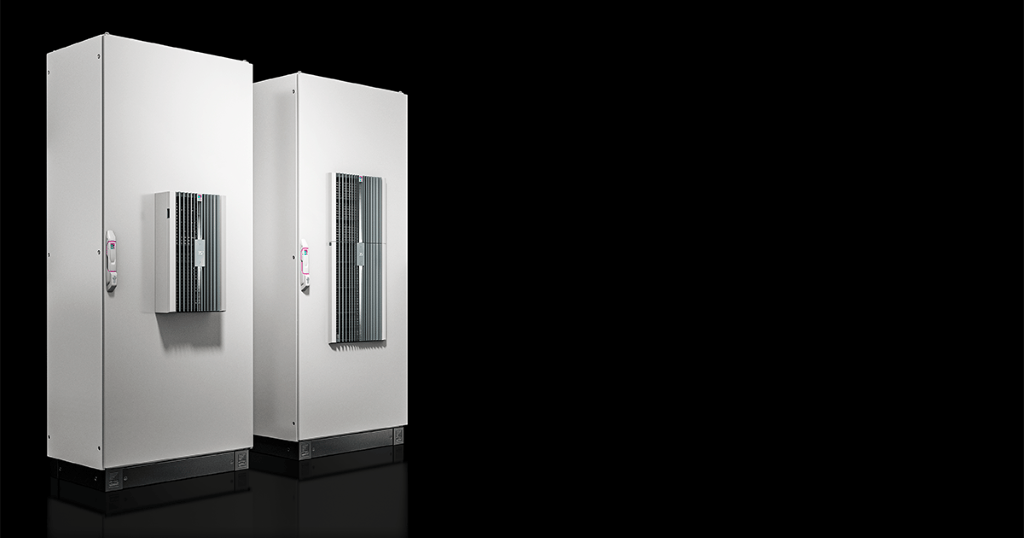
Manufacturers worldwide have a variety of frameworks, guidelines, and regulations to contend with. From safety to the ability to rate how durable products are against different conditions, compliance is essential in ensuring that your company and products meet operational standards while providing safe and reliable products to customers.
Rittal maintains a portfolio of around 1000 Approvals, Certificates and Declarations brought to our customers via our Website to support global application and regulatory acceptance of our products. Please refer to the Approbations sections of each products webpage to obtain the individual certificates.
Certain regulations and guidelines are legally mandated throughout different parts of the world. For example, labels like CE that are required by law in the European Union (EU) may not be relevant within the United States, but it’s essential for global manufacturers to adhere to it if they want to do business within the EU. Here, we go over some of the different global certifications and why they matter.
UL
Underwriter Laboratories (UL) is a global safety organization that’s OSHA-approved to perform safety testing to uncover and prevent U.S. workplace safety hazards. UL’s services extend to personnel, products, facilities, processes, and systems and demonstrate that they mitigate risk while sustaining organizational best practices.
Facilities, products, and more can be either UL certified, recognized, or listed. What are the differences between each?
The distinction is in the type of product. UL recognition is for components while the UL listing label is for finished products. UL listed products will have a recognizable UL seal and undergo considerably more testing for safety and sustainability than UL recognized components.
A UL listed seal is a mark of safety and longevity of a product, which benefits both manufacturers and consumers with the assurance that the item you’re using will last a long time.
Another differentiation to make is between UL listed and UL certified products: whereas UL listings apply to products, UL certification includes personnel, products, facilities, and systems. UL certification offerings include cybersecurity, food safety and supplier audits, medical equipment, device testing, and more. UL certification ensures that products comply with current UL standards to ensure quality and accuracy. Manufacturers are responsible for maintaining compliance with applicable requirements as long as their products continue to bear the UL certification mark.
Please find Rittal’s UL certified products on UL’s public certification database.
CE
Conformitè Europëenne (CE) exists exclusively in the European Union (EU). It is a mandatory label for all products distributed throughout the EU to show that a product meets safety, technical, and environmental standards. Its goal is to maintain consumer protection with a focus on health, safety, and the environment for the EU Market consisting of several independent Nations.
The main aim of CE marking is to keep sure that products within the EU fulfill the same level of product standard and with this is it eliminates trade barriers within EU Member States. It can be seen as a type of "technical passport" for certain products within the European Economic Area. CE labeling is also testament to the growing importance of European standardization, as it exists for the mutual recognition of existing national regulations, standards, and specifications. The regulations and standards a product complies with are listed in the corresponding CE declaration of conformity that a manufacturer is obliged to provide for all CE Marked products.
CSA
CSA Group — formerly the Canadian Standards Association — is an organization dedicated to safety, sustainability, and social good. Originating in Canada, CSA now offers worldwide testing, inspection, and certification from Canada to the United States, Europe, and Asia.
The CSA’s mission is to enhance lives in Canada and beyond by advancing the standards in both the public and private sectors. CSA is recognized by numerous organizations throughout the world, including OSHA and ANSI in the United States. Because every Canadian province has adopted the CSA electrical standards specifically, certification is mandatory for all electrical products that are installed in Canada.
Please find Rittal’s CSA certified products on the CSA public database.
IEC and NEMA
The National Electrical Manufacturers Association (NEMA) and the International Electrotechnical Commission (IEC) are two sides of the same coin. Both are organizations that rate electrical equipment.
NEMA is the United States’ largest trade association of electrical equipment manufacturers. You may have seen NEMA ratings on enclosures you’ve used. Primarily seen in North America, the rating measures an enclosure’s durability against elements like dust and water, which is critical information to learn before installing an enclosure. Whether it will be housed within a data center and subject to dust or on a ship with the possibility of spraying or submersion in water, NEMA will help you determine the type of enclosure that’s best-suited to your application.
IEC is a non-profit standards organization that applies internationally. They prepare and publish standards for electronic and electrical technologies. The IEC’s goal is to foster innovation while ensuring safety, reliability, and the interoperability — the ability of multiple devices to communicate with one another seamlessly — of all electronic services.
Inside the IEC you will find a standard which is responsible for creating ingress protection (IP) ratings. Like NEMA, IP ratings determine how much an enclosure protects against water or solids like dust and dirt. What are the differences between the two?
While both ratings cover both water from jets and immersion, as well as how much or little dust will eventually enter, NEMA also covers corrosion resistance and atmospheric gases like acetylene or gasoline. In the IEC you will find separate standards for corrosion or mechanical impact as well. And whereas the IEC is an international organization, NEMA is focused within the United States, but is well accepted in further countries of North and South America.
Whether doing business in the United States or globally, manufacturers have many different frameworks, regulations, and standards to consider. It’s important to understand which options are needed based on where you do business. For example, if you sell electronics in the United States and the EU, you would need to provide both IP and NEMA ratings for your product while complying with both CE and UL regulations.
IEC test reports issued by a registered laboratory (CB Report) are internationally accepted and can ease regulatory product acceptance in foreign countries that participate in the IEC as well.
Please find Rittal’s IEC compliance proof here.
Rittal products consistently meet the highest quality standards both domestically and internationally. Every component and enclosure is subjected to testing in accordance with standards and regulations in the United States and around the world. Learn more.

